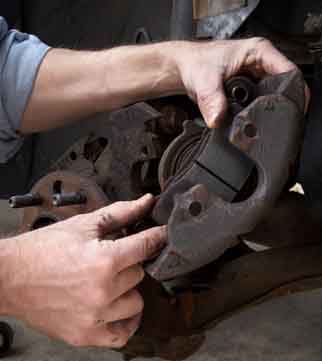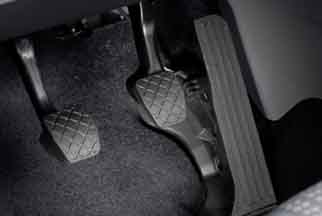How Safe Are Brakes on Commercial Vehicles?
Commercial vehicles, due to the weight and size, rely on what is called an “Air Brake” system. An air brake system is designed for heavily loaded vehicles such as trucks, buses and even railroad cars  because the strength of a leg on a pedal is not enough to stop such heavily loaded vehicles. The system is designed so that an air compressor that is tied to the engine will continuously maintain a certain PSI or pressure to what is called an air reservoir or brake chamber. When the driver of the vehicle presses the brake pedal, the pressure is transferred from the air reservoir to the air chamber at the wheel which in turn rotates a cam to apply the brake pads and safely stop. This is why you sometimes hear the sound of air being released after a truck has stopped or a parking brake applied.
because the strength of a leg on a pedal is not enough to stop such heavily loaded vehicles. The system is designed so that an air compressor that is tied to the engine will continuously maintain a certain PSI or pressure to what is called an air reservoir or brake chamber. When the driver of the vehicle presses the brake pedal, the pressure is transferred from the air reservoir to the air chamber at the wheel which in turn rotates a cam to apply the brake pads and safely stop. This is why you sometimes hear the sound of air being released after a truck has stopped or a parking brake applied.
The problem with any system that has such complexity is that it needs to be properly maintained and have safety features. If the air chambers are not properly adjusted it can result in uneven braking resulting in an unstable vehicle during braking. If the air chamber has a leak or low pressure is observed with no alarms, then the vehicle will not be able to stop in time. In 2000 the Commercial Vehicle Safety Alliance (CVSA) combined a three day inspection of over 42,000 commercial vehicles of
which 26 percent were considered out of service with brake defects. A 1990s study performed by the National Transportation Safety Board revealed that in an inspection of over 1,500 vehicles that 56.3 percent were declared out of service with brake defects of which 46.1 percent were from air brake adjustments.
CED Investigative Technologies Inc. has performed numerous investigations into commercial vehicle accidents where brakes are examined as a probable cause of the accident. The accident reconstructionist has certain things that they will look for based on the condition of the vehicle.
• Pad Wear – Are the brake pads in working condition.
• Air Brake Adjustment – Is the air brake adjustment properly set.
• Audible Leaks – Are there any leaks in the system reducing pressure.
• Working Alarm – Is there a low pressure alarm that would go off if the pressure is low.
• Parking Brakes – Most systems have a failback system that the parking brake releases in the event of a low pressure reading in an emergency.
Using this data and several other factors, CED Engineers can render an opinion as to the braking system of the vehicle and if the system had any contribution to the accident.






